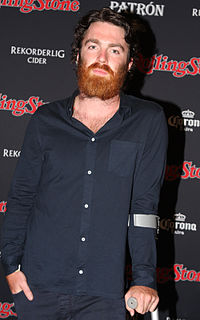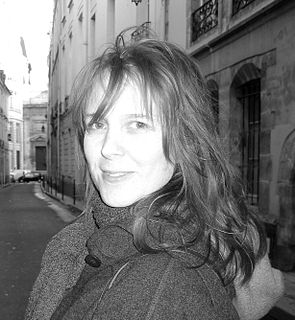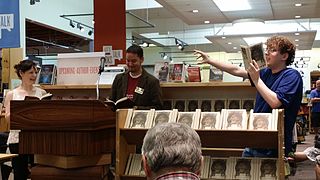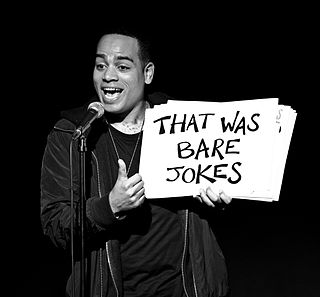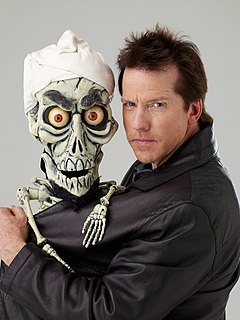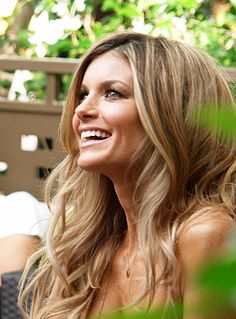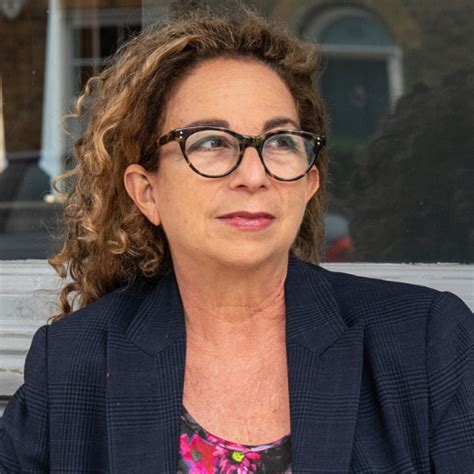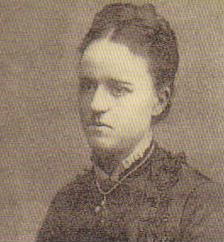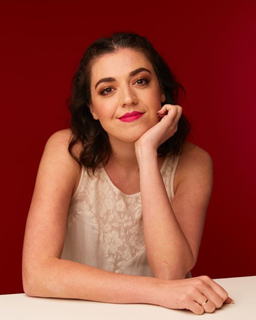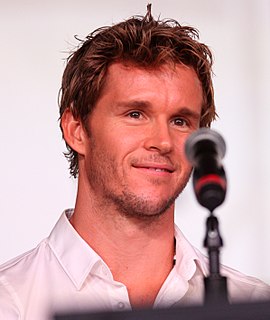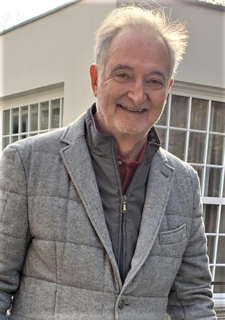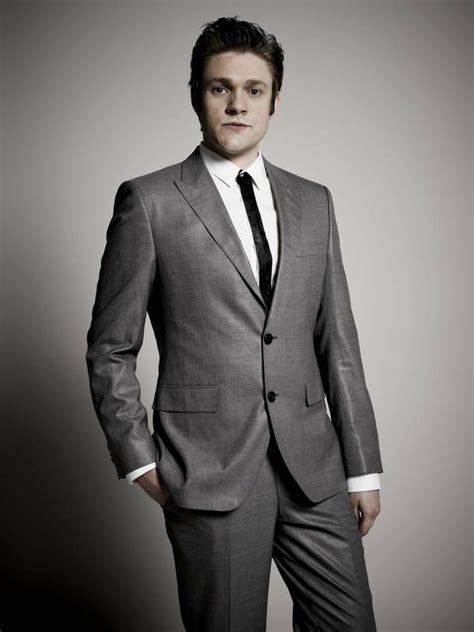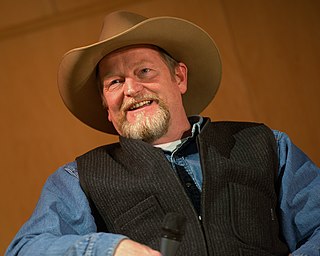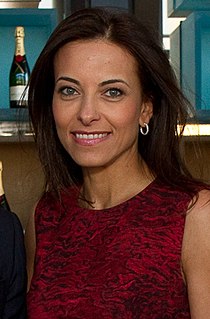Top 175 Monologue Quotes & Sayings - Page 3
Explore popular Monologue quotes.
Last updated on April 15, 2025.
Great lecturers seldom hesitate to use dramatic tricks to enshrine their precepts in the minds of their audiences, and at Yale perhaps Chauncey B. Tinker was the most noted. To read one of his lectures was like reading a monologue of the great actress Ruth Draper--you missed the main point. You missed the drop in his voice as he approached the death in Rome of the tubercular Keats; you missed the shaking tone in which he described the poet's agony for the absent Fanny with him his love had never been consummated; you missed the grim silence of the end.
I view my stories as sexual or personal. Curiously, I don't. When I was writing those stories I thought of them as comedy pieces in the vein of performance monologue, such as you might get with Richard Pryor, or Lenny Bruce, or George Carlin. So I don't feel vulnerable because I know the line of demarcation between "Writer Kevin" and "Narrative Kevin."
Science has only two things to contribute to religion: an analysis of the evolutionary, cultural, and psychological basis for believing things that aren't true, and a scientific disproof of some of faith's claims (e.g., Adam and Eve, the Great Flood). Religion has nothing to contribute to science, and science is best off staying as far away from faith as possible. The "constructive dialogue" between science and faith is, in reality, a destructive monologue, with science making all the good points, tearing down religion in the process.
Our true history is scarcely ever deciphered by others. The chief part of the drama is a monologue, or rather an intimate debate between God, our conscience, and ourselves. Tears, grieves, depressions, disappointments, irritations, good and evil thoughts, decisions, uncertainties, deliberations --all these belong to our secret, and are almost all incommunicable and intransmissible, even when we try to speak of them, and even when we write them down.
I'm sorry, if you've been married for five minutes, you've sacrificed something, you've looked over at your partner and have gone, "Oh my God this is the biggest mistake I've ever made in my life." And then the next moment it's "This is the most beautiful and extraordinary human being, and I'm going to stick with it because I love them more than anyone else." That monologue to me is the universal thing, especially for women because I feel like that's the big thing with women.
It's a lot of work to put a brand-new monologue and a brand-new show on the air and find comedy every single day. It's challenging and it's the hardest thing I have ever done, but it's the best-suited thing for me. The more relaxed I get and the more confident I feel, the more I get to play and be myself...
I should say, a piece of advice that was given to me very early on by the principle of RADA (Royal Academy of Dramatic Art) which is where I went. When he auditioned me, he said, "Your speech, monologue, is fine. It's good. Yeah, I think you have ability but you're making it happen. Don't make it happen, let it happen." And that's a sort of subtle shift I think, as an actor.
I happen to disagree with the well-entrenched theory that the art of conversation is merely the art of being a good listener. Such advice invites people to be cynical with one another and full of fake; when a conversation becomes a monologue, poked along with tiny cattle-prod questions, it isn't a conversation any more.
The 1992 US Olympic basketball team is the best sports team ever, the equivalent of rounding up the greatest American writers of the last century or so and watching them collaborate: 'OK, Twain, you do the dialogue and hand off to Faulkner. He'll do the interior monologue. Hemingway will edit - no, don't make that face, you know you overwrite. And be nice to Cheever. He's young, but he's got a good ear. Wharton and Cather can't play - they're girls.'
I think that connection with humans is so important. Sometimes I'll do this monologue and talk to the crowd, like, 'Come on, let's really connect here.' I don't think a lot of people understand it's a two-way exchange. Some people go to a show and are like, 'Yeah, you make me feel.' That's not how it works.
Oh, you’re going to die all right. All of you. And for what you’ve done to my brother you will suffer unimaginably! (Kessar) Yada, yada, yada. Am I the only one who gets sick of the bad-guy monologue? ‘Ooo, I’m the big evil. I’m going to kill you all. Just wait while I bore you to tears with my egomaniacal bullshit. I’m just a demon windbag who likes to hear himself speak and I’m trying to intimidate you.' (Kat)
Actually, on a slightly more serious but kind of parallel level, I remember being on Loveline before both hosts ascended into loftier places in the culture. But I remember being shocked by Dr. Drew. He went into this extended monologue about how anyone with a baby voice is probably the victim of child abuse or has some daddy issue. As an intellectually curious person, all I could think is that there isn't any clinical evidence about that. But to be the guy wearing the doctor's hat on the radio and teaching everybody about this? It just seemed like a parody of good advice.
Whether it's writing a monologue or writing standup or writing a screenplay or writing a play, I think staying involved in the creation of your own work empowers you in a way, even if you don't ever do it. It gives you a sense of ownership and a sense of purpose, which I think as an actor is really important.
The young man who's had the Guggenheim fortune behind him all his life - he can hire all the authorities on the subject to teach him how to do a monologue, but he's never going to have the right stuff to pull it off. If he doesn't walk out onstage needing to walk out there, he doesn't have a dream of doing well.
This book, 'Free bird', is so entangled with politics. I wanted to channel my own internal political monologue in some way to get it out of my brain. I'm not happy that the themes of the book have become more relevant as the publication date nears. Most of it was written in 2014 or so, before the whole Donald Trump thing began. As people paying attention know, the rise of Trump and Trumpism is not an aberration or sudden kind of phenomena.
In a perfect world, Joshua?s vertically gifted murderer would?ve had himself a monologue before rampaging, during which he loudly and clearly would?ve announced his full name, occupation, religious preference, preferably with his god?s country and time period of origin, his goals, dreams, and aspirations, and the location of his lair. But nobody had ever accused post-Shift Atlanta of being perfect.
Knowing has two poles, and they are always poles apart: carnal knowing, the laying on of hands, the hanging of the fact by head or heels, the measurement of mass and motion, the calibration of brutal blows, the counting of supplies; and spiritual knowing, invisibly felt by the inside self, who is but a fought-over field of distraction, a stage where we recite the monotonous monologue that is our life, a knowing governed by internal tides, by intimations, motives, resolutions, by temptations, secrecy, shame, and pride.
I really needed to dramatize and clarify that Rachel was taking strides towards her own healing and her own sobriety - and that she was actually thoroughly frightened about what she may have done.This was something that was so beautifully done in the book [The Girl on the Train] through inner monologue, but I couldn't just have a whole film filled with inner monologues. So going to Alcoholics Anonymous was a very simple solution to that problem.
When I first started getting into acting, I was doing improv in acting class, and I had done a serious monologue and everyone was cracking up laughing and I went to the drama teacher and said I don't want to be the class clown anymore, I want to do serious work, too, and they loved that, and so I started mixing in drama.
One of the strangest experiences one can have is to sleep on stage, as I once did in Sydney when I'd lost the key to my flat. I had to stay at night in a bed, which conveniently was on stage because my character Sandy Stone did his monologue from a bed. To wake up looking at a shadowy auditorium is a very peculiar feeling.
Cinema is a visual language, and you're always looking for visual metaphors for things. You know, if I was writing a play about Howard Hughes, I could have him give a monologue about how he's terrified to touch a doorknob. But on screen, you know, working with Marty Scorsese in 'The Aviator,' that became the series of images that told a story.
I loved my second trimester! I didn't feel sick anymore and had more energy. My bloated belly turned into a baby bump, and I definitely looked pregnant. That was a relief because when I was around 4.5 months, you could see people having this inner monologue with themselves, wondering if I ate too much pizza or if I was pregnant.
For weeks past he had been making ready for this moment, and it had never crossed his mind that anything would be needed except courage. The actual writing would be easy. All he had to do was to transfer to paper the interminable restless monologue that had been running inside his head, literally for years.
For we live with those retrievals from childhood that coalesce and echo throughout our lives, the way shattered pieces of glass in a kaleidoscope reappear in new forms and are songlike in their refrains and rhymes, making up a single monologue. We live permanently in the recurrence of our own stories, whatever story we tell.
The constitution of madness as a mental illness, at the end of the eighteenth century, affords the evidence of a broken dialogue, posits the separation as already effected, and thrusts into oblivion all those stammered, imperfect words without fixed syntax in which the exchange between madness and reason was made. The language of psychiatry, which is a monologue of reason about madness, has been established only on the basis of such a silence.
When I started writing short stories, I thought I was writing a novel. I had like 60 or 70 pages. And what I realized was that I don't write inner monologue. I don't want to talk about what somebody is thinking or feeling. I wanted to try to show it in an interesting way. And so what I realized was that I was really writing a screenplay.
I think that if I get into the habit of writing a bit about what happens, or rather doesn't happen, I may lose a little of the sense of isolation and desolation which abides with me. My circumstances allowing of nothing but the ejaculation of one-syllabled reflections, a written monologue by that most interesting being, myself, may have its yet to be discovered consolations.
I was applying to the art school, but there was a checklist that said I had to do either production design or stage management or acting. I thought, "I don't want to be an actor, but I know production and stage management take acting classes" - this is literally my internal monologue. I was like, "Designers don't have to take acting classes. Cool. I'll check that box".
The old Johnny Carson 'Tonight Show' was great in that he was so good with the guests, and it was not about him. I think he was very smart in realizing 'I have plenty of screentime on this show. I do my monologue and we do sketches and stuff like that.' During the interview, he really made it about trying to bring the best thing out of the guest.
If nobody talks about books, if they are not discussed or somehow contended with, literature ceases to be a conversation, ceases to be dynamic. Most of all, it ceases to be intimate. It degenerates into a monologue or a mutter. An unreviewed book is a struck bell that gives no resonance. Without reviews, literature would be oddly mute in spite of all those words on all those pages of all those books. Reviewing makes of reading a participant sport, not a spectator sport.
That is very different from how it used to be in the 20th century. Media was very one way. There's a small little industry. It broadcasted its message and everyone else in the world just had to listen. Now the internet is allowing what used to be a monologue to become a dialogue. I think that's healthy and actually restoring a more natural way.
What is called music today is all too often only a disguise for the monologue of power. However, and this is the supreme irony of it all, never before have musicians tried so hard to communicate with their audience, and never before has that communication been so deceiving. Music now seems hardly more than a somewhat clumsy excuse for the self-glorification of musicians and the growth of a new industrial sector.
my belief in the sacrament of the Eucharist is simple: without touch, God is a monologue, an idea, a philosophy; he must touch and be touched, the tongue on flesh, and that touch is the result of the monologues, the idea, the philosophies which led to faith; but in the instant of the touch there is no place for thinking, for talking; the silent touch affirms all that, and goes deeper: it affirms the mysteries of love and mortality.
I actually did an Agatha Christie monologue for my audition showcase at Guildhall, and that's how I got my agent. Some people said 'ooh it's old hat' and 'too risky'. Some people think she's all about the narrative and thriller aspect at the expense of character and I disagree. I did it anyway and it worked well.
If there's a character type I despise, it's the all-capable, all-knowing, physically perfect protagonist. My idea of hell would be to be trapped in a four-hundred page, first-person, first-tense, running monologue with a character like that. I think writers who produce characters along those lines should graduate from high school and move on.
I'm a huge proponent of exchanges, student exchanges, cultural exchanges, university exchanges. We talk a lot about public diplomacy, .. It's extremely important that we get our message out, but it's also the case that we should not have a monologue with other people. It has to be a conversation, and you can't do that without exchanges and openness.
I love acting with very little dialogue. As long as it's supported. I mean, in terms of cinema, you can have a great monologue, but if you're not supported by the images ... You can be feeling things and then you see it back, and you're like, "None of that came across." Or the angle of my face gives it a completely different interpretation than what I was trying to communicate.
A film, since it is primarily a visual medium, should really be like a silent film. You should be able to watch something and understand what was going on and use voice when you need to communicate something you can't necessarily communicate visually. The book is the opposite. The book is an inner monologue which is beautiful.
We have been making constant efforts, all the time, to start dialogue with the SLORC, but you know it takes two. We don't want a monologue. We would like a substantive political dialogue among the SLORC, political leaders including myself, and leaders of ethnic groups-exactly as stipulated in the U.N. General Assembly resolution on Burma.









